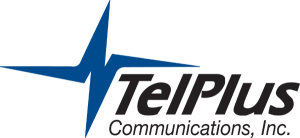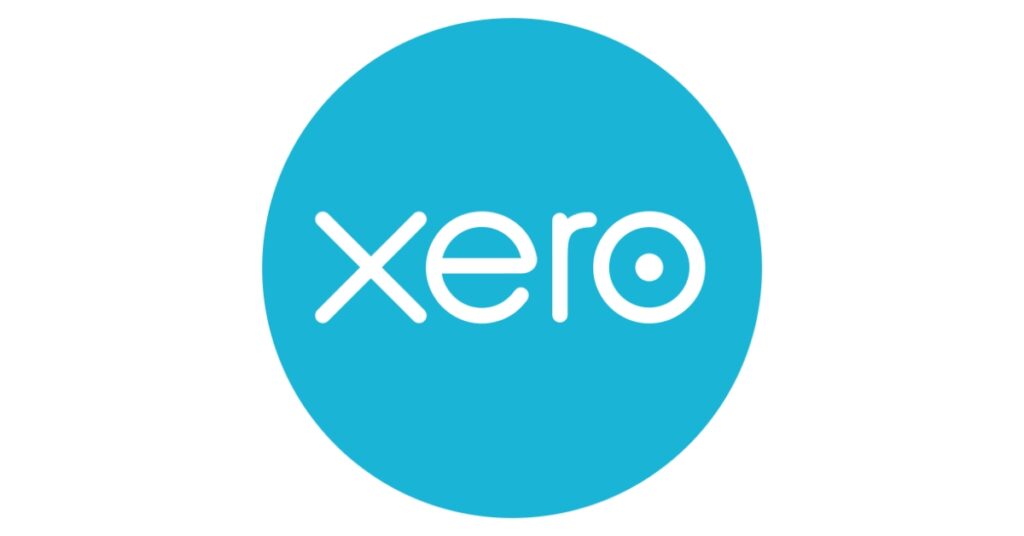How Xero Accounting Software Can Help Your Small Business
Table of Contents
Managing finances is one of the most important aspects of running a business, but it can also be one of the most challenging. For small and medium-sized businesses, especially, staying on top of bookkeeping, invoicing, payroll, and tax compliance often eats up valuable time. That’s where Xero accounting software comes in.
Xero Accounting is a cloud-based accounting platform with over 4.2 million subscribers worldwide. It gives small business owners, bookkeepers, and accountants access to real-time financial data anytime, anywhere, and on any device. With powerful features, easy-to-use tools, and a flexible app marketplace, Xero has become a top choice for businesses seeking to simplify accounting and make informed financial decisions.
Suppose you’re searching for the right accounting system to support your business operations. In that case, this guide covers everything you need to know about Xero accounting systems and why it’s a trusted option for business owners worldwide.
What Is Xero Accounting Software?
At its core, Xero accounting is designed to simplify and streamline financial management for small and mid-sized businesses. Unlike traditional accounting systems that require desktop installations or constant manual updates, Xero is entirely cloud-based. That means you can log in from your computer, tablet, or smartphone to access your books whenever you need to.
In practical terms, this flexibility makes a real difference for your business. For example, a contractor on a job site can upload receipts instantly from their phone instead of saving them for later. A retail business can connect its point-of-sale system to Xero to automatically track daily sales. An e-commerce business can reconcile online payments as they happen without hours of manual entry. Xero is built to handle everyday bookkeeping tasks in real time so business owners don’t fall behind.
Xero was created with small business owners in mind, but it’s flexible enough to support companies across many industries, including retail, e-commerce, professional services, and trades. Because the platform connects directly to your business bank accounts, credit cards, and payment systems, it automates much of the work involved in bookkeeping.
Key Features of the Xero Accounting Package
Xero accounting stands out because of its wide range of features that simplify accounting and give businesses more control over their finances. Here’s a detailed look at the core tools you’ll find in the Xero accounting package.
Cloud-Based Accessibility
With Xero, you don’t have to worry about installing software or backing up files. Everything is stored securely in the cloud, which means you can log in from any device with an internet connection. This is particularly valuable for business owners who travel, operate in multiple locations, or work with remote staff. Accountants and advisors can also be given access, which eliminates the need to email spreadsheets or wait for quarterly updates. Instead, everyone works with the same data in real-time, which leads to quicker decisions and fewer mistakes.
Invoicing and Payments
Cash flow is the lifeblood of small businesses, and Xero makes it easier to get paid on time. You can create custom-branded invoices, set up recurring billing for repeat customers, and even enable online payment options directly from the invoice. When a client pays, the payment is automatically recorded in the system, eliminating the need for manual data entry. This not only speeds up billing but also reduces the risk of unpaid invoices slipping through the cracks.
Bank Reconciliation
Reconciling bank accounts is often one of the most time-consuming parts of bookkeeping, but Xero simplifies the process by automatically importing and categorizing transactions. The system matches bank records with your invoices and bills, flagging any discrepancies for review. For businesses with high transaction volumes, this automation can save hours of manual work each week. It also ensures that your financial data is accurate and up-to-date, which is essential when preparing reports or making business decisions.
Expense Management
Managing expenses can be overwhelming, especially when receipts are spread across employees and departments. Xero makes it easy to capture and organize expenses by allowing users to photograph and upload receipts directly through its mobile app. Once uploaded, expenses can be categorized, tracked, and even linked to specific projects or clients. This streamlined process not only facilitates tax preparation but also provides business owners with visibility into where their money is being spent.
Payroll and Tax Support
In regions where payroll is supported, Xero allows business owners to handle employee payments directly within the system. Payroll integrates with timesheets and accounting data, which means wages, tax deductions, and benefits are all recorded automatically. Even if your business doesn’t use Xero payroll, its tax support tools make compliance easier by generating accurate reports and providing insights into upcoming obligations.
Integrations and Add-Ons
One of Xero’s biggest advantages is its extensive app marketplace. With over 1,000 available integrations, you can connect Xero to your CRM, e-commerce platform, payment gateways, inventory systems, and more. For example, an online retailer can link Xero with Shopify to track sales and stock levels, while a consulting firm can integrate it with project management tools to connect billing with time tracking. This flexibility means Xero can adapt to your business rather than forcing you to adapt to the software.
Benefits of Using Xero Accounting Systems for Small Businesses
Small businesses often face limited time and resources, making efficiency a top priority. The real value of Xero lies in how it transforms everyday accounting tasks into streamlined, automated processes that save time and improve accuracy. Beyond bookkeeping, it also creates opportunities for collaboration and more innovative financial planning.
Improved Efficiency – Automating repetitive tasks like reconciliation and invoicing saves hours each month, freeing up time for owners to focus on growth.
Real-Time Collaboration – Business owners, accountants, and bookkeepers can all access the same financial data instantly, making communication smoother and reducing delays.
Reduced Costs – Unlike traditional systems that require software licenses, hardware, and IT support, Xero’s cloud-based approach eliminates many of those expenses.
Scalability – Xero can handle the needs of a startup with a handful of invoices or a growing business managing hundreds of transactions daily. It adapts as your company expands.
Enhanced Security – With bank-level encryption and cloud backups, Xero provides peace of mind that sensitive financial data is always protected.
How Xero Compares to Other Accounting Software
There are many accounting platforms available today, but Xero has built its reputation on user-friendly design and robust functionality. Businesses often compare it with alternatives like QuickBooks or FreshBooks when evaluating options.
Xero vs QuickBooks – QuickBooks is widely known, but many users find Xero’s interface simpler and easier to navigate. Its collaboration tools also make it appealing to businesses that work closely with outside accountants.
Xero vs FreshBooks – FreshBooks is great for freelancers and small-scale invoicing, but Xero offers more advanced bookkeeping and reporting features that better support growing businesses.
Unique Advantages of Xero – With global adoption, an intuitive interface, and one of the largest app marketplaces in accounting software, Xero positions itself as a flexible solution for businesses that want a long-term system.
How Xero Accounting Improves Business Operations
Adopting Xero accounting has a direct impact on how businesses operate on a daily basis. Instead of being bogged down by manual processes, owners and staff can focus on running the business and making informed decisions based on accurate data.
Real-Time Decision-Making – Up-to-date financial data allows owners to react quickly to market changes, customer trends, or cash flow challenges.
Faster Billing and Payments – Automated invoicing and integrated payment options improve cash flow and reduce time spent chasing overdue payments.
Less Manual Work – By automating reconciliations, expense tracking, and reporting, Xero reduces human error and frees up staff resources.
Centralized Financial Hub – With payroll, expenses, invoices, and reporting all in one place, businesses gain complete visibility into their finances without juggling multiple systems.
Who Should Use Xero Accounting?
Xero is designed to be flexible, but some businesses will find it particularly beneficial. It’s well-suited for companies that require a reliable and scalable solution without the complexity of enterprise-level accounting systems.
Small Businesses – For startups and small companies, Xero provides professional-grade tools without overwhelming complexity. It’s easy to learn and efficient to use.
Companies with Remote Teams – Cloud access means employees, bookkeepers, and accountants can all log in from anywhere, making it ideal for businesses with distributed teams.
Service-Based Businesses – Companies that bill clients regularly, such as consultants or agencies, benefit from recurring invoicing and expense tracking tied to projects.
E-commerce Businesses – With integrations to platforms like Shopify, WooCommerce, and Stripe, Xero is an excellent option for online retailers needing accurate, automated bookkeeping.
How to Get Started With Xero Through TelPlus Communications
Getting started with Xero accounting is straightforward, and TelPlus Communications makes the process even easier. Our team can help you choose the right Xero accounting package, assist with setup, and ensure it integrates smoothly with your existing tools. We provide guidance from day one, so you don’t have to waste time troubleshooting or figuring out the best way to configure your system.
By partnering with TelPlus Communications, you’ll gain the confidence of knowing that your Xero accounting system is properly implemented and supported. With real-time financial insights, streamlined processes, and seamless collaboration, your business will be better positioned to grow.
FAQ About Xero Accounting For Small Businesses
Yes. Xero accounting is designed with small businesses in mind. It simplifies everyday bookkeeping tasks like invoicing, expense tracking, and bank reconciliation. Because it’s cloud-based, owners and their accountants can collaborate in real time, making it easier to stay organized and make informed financial decisions.
While the right choice depends on the size and needs of the company, most small businesses benefit from a Xero accounting package that includes invoicing, bank reconciliation, and reporting. Starter plans are great for sole traders and freelancers, while standard or premium packages are better for growing businesses with higher transaction volumes or payroll needs.
Xero makes bookkeeping easier, but it doesn’t replace the expertise of a professional accountant. Many businesses use Xero alongside their accountant for tasks like tax planning, compliance, and financial strategy. The advantage is that your accountant can log into your Xero accounting system anytime, eliminating the hassle of sharing files.
While Xero offers many benefits, it does have a few limitations. Some users feel the learning curve can be challenging at first, and advanced payroll features aren’t available in every region. Additionally, businesses with highly complex accounting needs may require specialized add-ons to supplement the core Xero bookkeeping tools.
Yes. Xero is known for its intuitive interface, and many small business owners teach themselves how to use it through online tutorials, guides, and practice. However, businesses often see faster results when they work with a professional during setup, ensuring the system is configured correctly from the start.
Both are excellent accounting systems, but Xero and QuickBooks have different strengths. QuickBooks is widely recognized and offers robust reporting, while Xero is praised for its ease of use, integrations, and real-time collaboration features. For many small businesses, Xero accounting is the more flexible and cost-effective choice.

